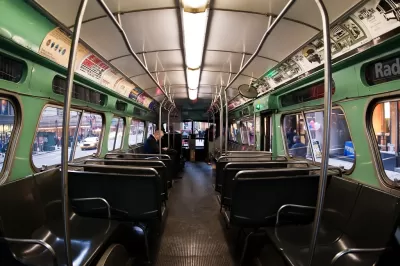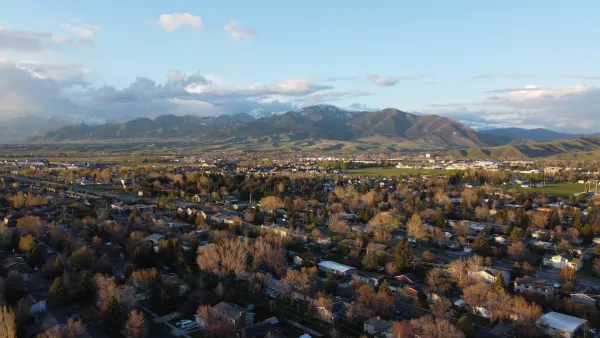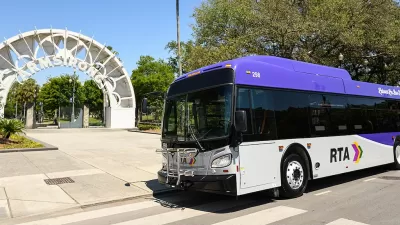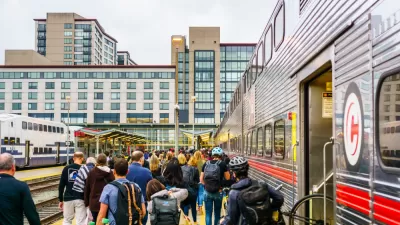Although federal transit funding is traditionally reserved for capital improvement and infrastructure projects, advocates argue that funding improved service could have transformative impacts on transit-dependent communities.

In a blog post, TransitCenter, a New York-based transit advocacy organization, joins other transit advocates in a call to making public transit funding a federal priority long after pandemic-related emergency measures are lifted. COVID-19 only served to highlight existing gaps in transit service and the stark inequities faced by transit users. "[A]fter the pandemic recedes, a federal program to support transit service could yield immense dividends," the blog notes.
"In most American cities, the fundamental shortcoming of transit is its sheer scarcity." Allowing "transit agencies to spend federal funds to run buses and trains" after the pandemic, while "a break with longstanding policy," is "the fastest way to deliver better transit networks, improve the experience of current riders, and increase ridership" through increased service.
TransitCenter offers an analysis of the projected effects of a $20 billion investment in transit service nationwide, which, according to an analysis by the Urban Institute, could "be more than enough to bring transit service in every U.S. urban area up to the level in the Chicago region." Such a program, TransitCenter argues, could yield immense benefits for transit riders. "Instead of cutting people off from opportunity, condemning households to struggle with high transportation costs, and overheating the planet, our transportation systems can advance economic fairness, racial equity, and climate action."
FULL STORY: Envisioning a Federal Program to Increase Transit Service

Planetizen Federal Action Tracker
A weekly monitor of how Trump’s orders and actions are impacting planners and planning in America.

Map: Where Senate Republicans Want to Sell Your Public Lands
For public land advocates, the Senate Republicans’ proposal to sell millions of acres of public land in the West is “the biggest fight of their careers.”

Restaurant Patios Were a Pandemic Win — Why Were They so Hard to Keep?
Social distancing requirements and changes in travel patterns prompted cities to pilot new uses for street and sidewalk space. Then it got complicated.

California Homeless Arrests, Citations Spike After Ruling
An investigation reveals that anti-homeless actions increased up to 500% after Grants Pass v. Johnson — even in cities claiming no policy change.

Albuquerque Route 66 Motels Become Affordable Housing
A $4 million city fund is incentivizing developers to breathe new life into derelict midcentury motels.

DC Area County Eliminates Bus Fares
Montgomery County joins a growing trend of making transit free.
Urban Design for Planners 1: Software Tools
This six-course series explores essential urban design concepts using open source software and equips planners with the tools they need to participate fully in the urban design process.
Planning for Universal Design
Learn the tools for implementing Universal Design in planning regulations.
Heyer Gruel & Associates PA
JM Goldson LLC
Custer County Colorado
City of Camden Redevelopment Agency
City of Astoria
Transportation Research & Education Center (TREC) at Portland State University
Camden Redevelopment Agency
City of Claremont
Municipality of Princeton (NJ)





























